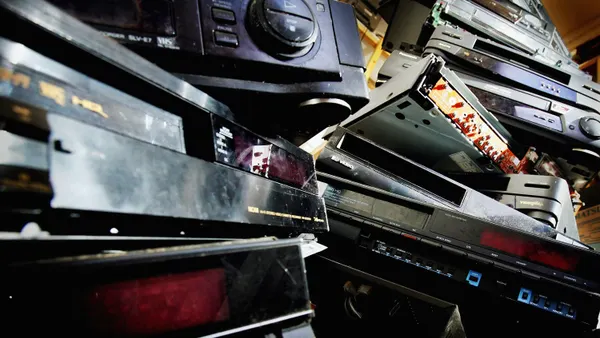Dive Brief:
- In February, Waste Management began converting organics into biogas via an anaerobic digestion process. After two years, if the project is deemed a success, the Los Angeles County Sanitation District could decide to expand the program’s reach.
- Waste firms and cities alike are searching for ways to divert waste from landfills and anaerobic digesters are seen as a viable solution. A larger volume of waste equates to more energy generation.
- A 2012 survey conducted by BioCycle Magazine found 183 communities across 18 states offered organic curbside collections. Scott Beckner, an integrated waste management specialist at California’s Department of Resources, Recycling and Recovery said that "composting facilities are figuring out new technologies to meet local needs."
Dive Insight:
As Massachusetts prepares for its ban of commercial food waste to start and towns begin implementing their own programs, the issue facing these projects is the lack of support infrastructure. Europe generally has received government funding to push along anaerobic digestion plants, while the U.S. has been forced to innovate due to fewer incentives, said Patrick Serfass, the executive director of the American Biogas Council. As a result, according to Serfass, biogas projects in the U.S. are profitable, instead of relying on government subsidiaries to continue generating sustainable margins.










